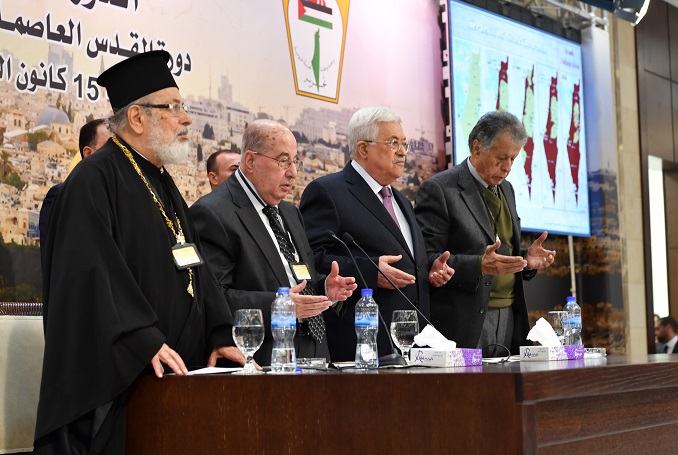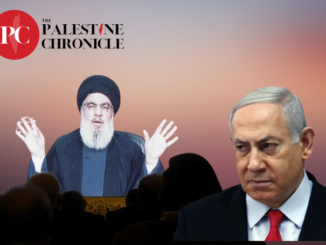
By Ramona Wadi
The White House has dismissed statements by Israeli Prime Minister Benjamin Netanyahu regarding discussions with the US about Israel’s annexation ambitions. Within the larger framework, this latest diplomatic dispute does not carry much weight. In his usual vague commentary, US President Donald Trump has said he is “not necessarily sure that Israel is looking to make peace”. Between the denial of discussions with Netanyahu and Trump’s statement there is merely a reflection of allowing the same violations to be repeated, while holding nothing of value for Palestinians.
Speaking prior to the White House communication Palestinian Authority Spokesman Nabil Abu Rudeineh declared that annexation “will not change the reality, because settlements are illegal”. Wafa news agency also quoted him saying that annexation legislation “would destroy every international effort that aims to salvage the peace process”.
Such sweeping statements have inflicted so much damage on Palestine and it seems there is no intention to at least abstain from generalisation. There is little dispute internationally that settlements are illegal, particularly after UN Security Council Resolution 2334. Yet to ignore the process which has altered historic Palestine is a political defeat.
The reality that settlements are illegal is unlikely to change, regardless of any legislation brought forth by Israel. However, to state that reality will remain unaltered if annexation happens is irresponsible. Independently of political leadership, Palestinians have contested every colonial process instigated by Israel. Palestinians are aware of the imbalanced dynamic to which the PA has contributed and which gives them the necessary space to articulate a purported stalemate.
There is no stalemate in Palestine. What the PA diligently refuses to recognize is a systematic displacement of people and erosion of territory as a result of colonization.
The PA is bestowing permanence upon settlements with statements such as that of Abu Rudeineh. In turn, this permanence is not contested because the PA is careful enough to frame its discourse within the illegality of settlement expansion and land appropriation. The ensuing charade is profitable for Israel, the PA and the international community.
By allowing the divide between settlement expansion and rhetoric of illegality to entrench itself, the barrier between protest and action is fortified to the point that Palestinian voices are left with little option other than to reiterate that settlements are illegal. Without the space for unified protest, there is no pressure on political representatives to move beyond statements which only bolster the gain of individual profiles.
Neither should Abu Rudeineh’s rhetoric imply that there is an “international effort to salvage the peace process”. What would the PA lose if it unequivocally declared there is no international political will towards a solution for Palestinians and their right to historic Palestine?
It is not viable for the PA to lose its corrupted privileged position, precarious though it is due to its dependence upon Israeli colonisation. The loss of such gain at the expense of Palestinian exploitation would also eliminate the PA’s political identity. On the other hand, what would Palestinians gain without the interference of the political agenda embraced by the main actors in this colonial enterprise?
Why is change manacled to one discourse to promote a fact regarding illegality, yet deprived of its possibilities in terms of Palestinian rights? It is a fact that a choice has been made for Palestinians to squander the entire territory in exchange for building one of the largest reserves of human rights rhetoric. The least the PA can do is to assert that Palestinians have no narrative in this cycle of limitations – their narratives speak of liberation, not the promotion of acquiescence.
– Ramona Wadi is a staff writer for Middle East Monitor, where this article was originally published. She contributed this article to PalestineChronicle.com.







